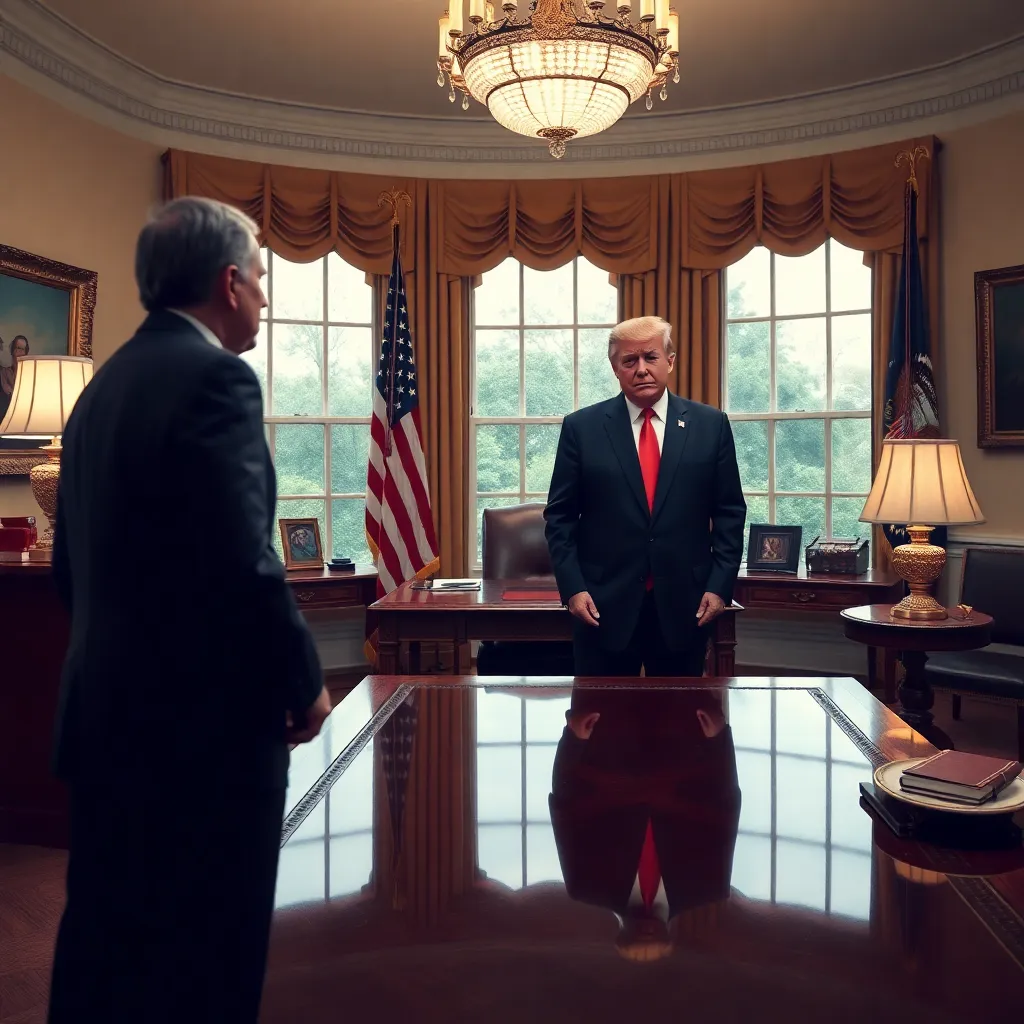
In a surprise move, US President Donald Trump announced a temporary halt to most of the tariffs imposed on Chinese goods, sending shockwaves through global markets and shifting the focus of the ongoing trade war.
The pause, which applies to approximately $120 billion worth of products, is a departure from Trump’s earlier stance that China was not willing to make significant concessions. The sudden change in strategy has left analysts and traders alike wondering about the implications for US-China relations and the broader global economy.
While some see the move as a positive step towards de-escalating tensions, others caution that it may be a tactical maneuver by Trump’s administration to gain leverage in future negotiations.
“This is a classic example of Trump using a temporary pause to create space for further talks,” said John Pelley, a trade expert at the University of Michigan. “It’s a strategic move to try to get China back to the negotiating table.”
The decision has been welcomed by some in the business community, who believe that reduced tariffs will boost exports and stimulate economic growth.
“This is a welcome relief for US companies operating in China,” said Mark Kennedy, president of the National Association of Manufacturers. “We’re optimistic about the potential for increased trade and cooperation between our countries.”
However, others are more skeptical about the move’s long-term effects. “While this pause may provide some short-term benefits, it doesn’t address the underlying structural issues that led to the trade tensions in the first place,” said David French, a trade expert at the National Retail Federation.
The European Union and other international partners have expressed relief at the pause, but also warned that more needs to be done to resolve the ongoing trade disputes.
“We welcome this development, but it’s just one step towards resolving our differences with China,” said EU Trade Commissioner Phil Hogan. “We need a comprehensive agreement that addresses all aspects of the trade relationship.”
As markets adjust to the new reality, traders and investors are bracing for further volatility in the coming weeks. With negotiations set to resume soon, one thing is clear: the Trump administration’s tariff pause has given both sides a temporary reprieve, but the future of US-China relations remains far from certain.
In Brussels, EU officials were quick to welcome the move, saying it would help to alleviate some of the pressure on businesses and consumers. “This development provides a much-needed breathing space for our companies,” said Hogan. “We look forward to continuing the constructive dialogue with China.”
However, not everyone is celebrating the pause. In Beijing, Chinese officials have expressed disappointment at Trump’s decision, saying it does not reflect a fundamental shift in his administration’s approach.
“We hope that this pause will not be seen as a temporary reprieve but rather an indication of a genuine desire to resolve our differences,” said Chinese Vice Premier Liu Yuyi.
With tensions still simmering, one thing is clear: the Trump administration’s tariff pause has shifted the focus of the trade war onto China. As markets bounce back from the initial shock, traders and investors will be watching closely to see how this development plays out in the coming weeks and months.






